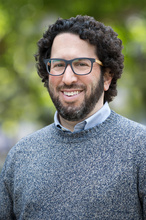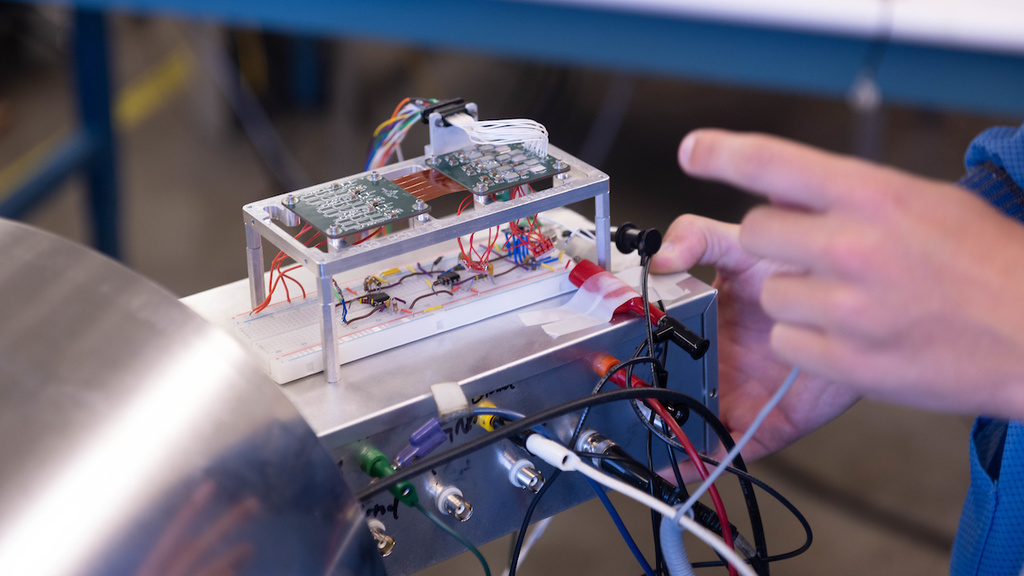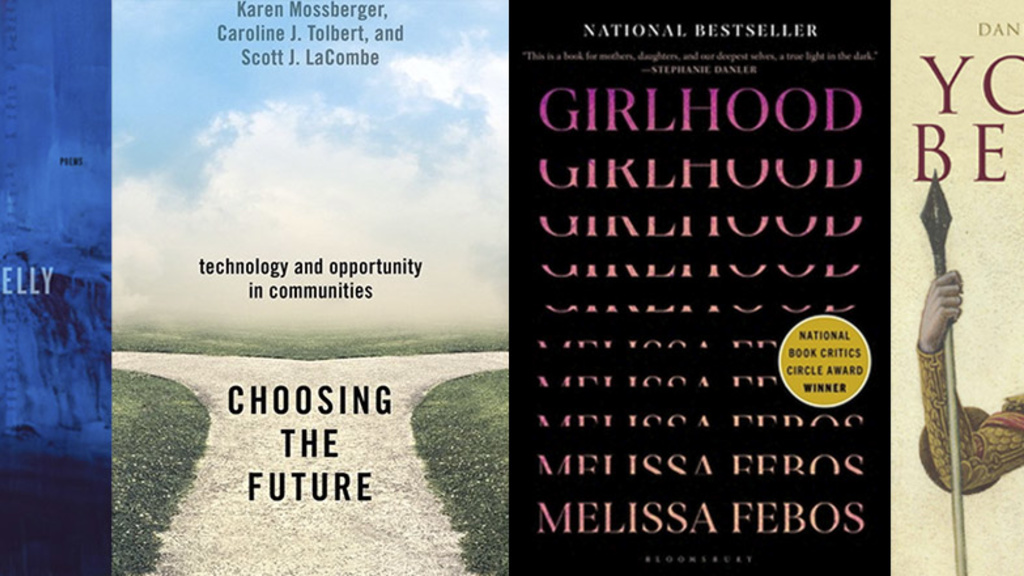By Joshua Weiner, Associate Dean for Research

The artists, writers, scholars, and scientists of the University of Iowa College of Liberal Arts and Sciences span an enormous range of disciplines and approach their work with a diverse array of viewpoints.
What they share is a commitment to the importance of thinking deeply about the world around us—and within us—and a desire to explain, depict, and transmit their unique understanding to our students, colleagues, and citizens. CLAS researchers, scholars, and artists have shown impressive resilience during the past few years, overcoming a multitude of challenges brought on by a global pandemic, heightened societal tensions, and an educational landscape that has likely changed forever.
Research in CLAS is stronger than ever—as highlighted by the facts, figures, and stories below.
Grants
External grant, contract, and fellowship funding in CLAS has surged in recent years to unprecedented levels. The formation of the college's Grant Support Office (GSO) in 2018 provided the support our faculty, research staff, and graduate students need to pursue and manage a wide array of awards. Total dollars awarded jumped nine percent from FY18 to FY19 and another seven percent from FY19 to FY20.
This growth was boosted into outer space with $115 million—the largest single grant ever received by the University of Iowa—awarded by NASA for the TRACERS (Tandem Reconnection and Cusp Electrodynamics Reconnaissance Satellites) planned orbiter mission to study the origins of the solar wind and how it affects Earth, based in our Department of Physics and Astronomy.

Strong grantsmanship by our faculty in several other departments, including Biology, Chemistry, Communication Sciences and Disorders, Computer Science, Health and Human Physiology, and Psychological and Brain Sciences, also helped drive our total dollars awarded from a prior average of ~$40 million annually to $81 million in FY21, $71 million in FY22, and over $100 million already in FY23—with four months left.
Not only does this mean our dedicated scientists can fully pursue their research aimed at understanding the phenomena of the natural world, the way we communicate, and the workings of our brains and bodies in health and disease, it allows CLAS to provide better support for research and scholarship throughout our 37 departments. Indirect cost return associated with grants provides an important portion of the funds we need to renovate space, purchase and repair equipment, support internal programs like Old Gold Summer Fellowships, and provide services, such as the GSO.
Fellowships
External support and recognition of CLAS research by national and international funding agencies are not limited to the sciences. Our arts, humanities, and social science faculty successfully compete for limited, prestigious fellowships that allow them protected time to focus on their impactful scholarly and artistic projects.
Since 2020, many CLAS faculty have received fellowships from major agencies such as the American Council of Learned Societies (ACLS), the Carnegie Corporation of New York, the Ford Foundation, the John Simon Guggenheim Memorial Foundation, and the National Endowments for the Humanities (NEH) and for the Arts (NEA).
Our faculty have also garnered support from a wide variety of discipline-or internationally-focused foundations. These fellowships are critical because of the support they give to the work of our scholars and artists, but also for the national and international renown they bring to our college and the University of Iowa, which boosts our recruitment of gifted students, staff, and faculty.
Awards, recognition, and rankings
Last fall, the University of Iowa passed Princeton and Harvard, landing as the No.2 university in the country for Writing in the Disciplines, according to U.S. News and World Report. This distinction was earned by CLAS and the programs of our college, helping prepare students across the university for success in their field as writers and communicators.

That strength is exemplified in the many books our faculty have authored and published, and the prestigious awards they have received for their work, including Melissa Febos, associate professor in the Department of English, who in 2022 won a National Book Critics Circle Award (in addition to both Guggenheim and NEA fellowships), and Donika Kelly, assistant professor in English, who won a 2022 Anisfield-Wolf Book Award (as well as being a finalist for a National Book Critics Circle Award and being awarded an NEA fellowship).
The recognitions continue to come in for our faculty. In January, Graznya Kochanska was named a 2022 fellow of the American Association for the Advancement of Science (AAAS), a year after five of our faculty received this prestigious recognition. Other recent significant awardees include Julianna Pacheco, who was selected as a Robert Wood Johnson Foundation Interdisciplinary Research leader; Weimin Han who was named a Fellow of the American Mathematical Society; Craig Kletzing who was elected a fellow of the American Physical Society; and just in the last two weeks, Anna Malkova who was named a fellow of the American Academy of Microbiology—plus many more accomplishments.
Strategic vision
As we pursue the CLAS 2021-2026 Strategic Plan, the research team has made significant strides and set goals and priorities for the coming year. You can view our progress from year one and the priorities for year two on the CLAS Strategic Plan website.
Research team members:
- Joshua Weiner, Associate Dean for Research
- Carmen Langel, Grant Support Office Director
- Lance Bolton, CLAS Technology Services Senior Director
- Eugene Buck, Facilities Director
- Stratis Giannakouros, Office of Sustainability and the Environment Director
- Gabbie McDermott, Operations Specialist
The success of this institution is in many ways driven by the success of our college; and the success of CLAS is driven in turn by our faculty, staff, and students working and collaborating every day to strengthen our culture of creativity and discovery.